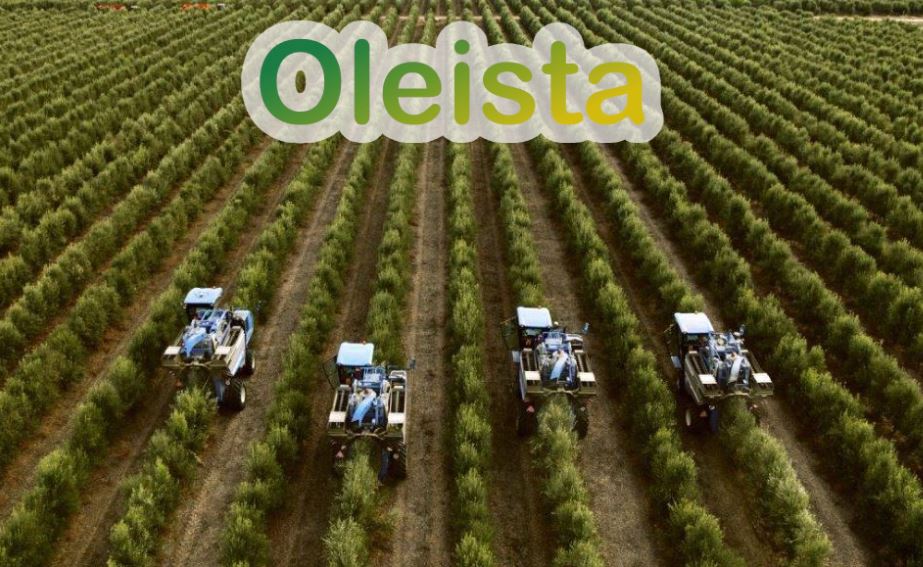
10 Recommended Varieties for High-Density Olive Orchard Cultivation
The olive oil industry landscape and priorities for varietal selection shifted when, in the early 1990s, it was conceived that olive trees could be grown like a vineyard for machine harvesting.
The Key Factors for Growing Olive Trees in Hedge Rows
High-density olive orchard cultivation involves planting 1,600 to 1,900 trees per hectare with spacing of 4 x 1.5 meters; attempts to narrow the spacing to 4 x 3 meters were made but this reduced sunlight penetration. Rows are aligned north/south to minimize shading. Pruning and harvesting are mechanized, which are major strengths of this system.
This system yields higher productivity per area, allows for earlier production, which helps offset costs sooner, and overall cultivation is more cost-effective due to the automation of pruning and harvesting.
High-density olive orchard cultivation is not just a passing trend; it's a revolution here to stay, transforming the agricultural landscape and promising a bright future for the olive industry. With a focus on quality, efficiency, and sustainability, olive orchards are once again at the forefront of agriculture.
The varieties must be suitable for this type of cultivation. Plants should be low in vigor, enter production quickly, yield a stable production (outperforming the species' usual alternate bearing tendency), and produce high-quality oil.
The 10 Most Recommended Varieties for High-Density Olive Orchard Cultivation:
Arbequina
Is one of the varieties suited for high-density cultivation and was used from the beginning of this system's implementation. It tolerates cold, has medium vigor, produces sweet oil, and is productive and consistent. It is not well adapted to chalky soils. Now, it is being phased out in favor of improved varieties.
Arbosana
Is a small-fruited variety like Arbequina, but unlike Arbequina, it is sensitive to cold and thrives in chalky soils.
Arbosana-2
Named for its similarities to Arbosana (though genetically distinct), this variety is very cold-resistant, has low vigor, a notable consistent annual yield, is hardy against diseases, and produces a commercially desirable and appreciated oil.
Koroneiki
Named because its fruit has a crown-like shape, produces high-quality oil, is very productive but also very cold-sensitive.
Royeta de Asque
Named after the village in Aragon, Asque, situated in a cold region. It has low vigor, early maturation, and is suited for intensive plantings at certain altitudes as it tolerates (but does not resist) cold. The tree is quite hardy against diseases, especially resistant to olive knot and peacock spot.
Sikitita
Is a variety developed by the University of Córdoba and IFAPA; its name alludes to its small size, "chiquitita," and was chosen due to registration issues. It is a cross between Picual and Arbequina, resulting in trees with low vigor.
Oliana
Is a cross between Arbequina and Arbosana. It has low vigor; even in fertile soils, it grows little, has a bush-like nature, and hardly requires regular pruning. Its productive capacity and cold tolerance make it a variety to consider for high-density cultivation, and it produces extra virgin olive oil with sweet, aromatic nuances.
Lecciana
A cross between Arbosana and the Italian Leccino, produces high-quality oil that is particularly rich in polyphenols, allowing for excellent preservation. It also has outstanding organoleptic characteristics, resulting in olive oils with great personality and stability, ideal for both mono-varietal EVOO production and blending.
The Empeltre Farax clone
Is a grafted variety due to its difficulty rooting. It significantly improves the Empeltre variety's adaptability to high-density cultivation, reducing the tree's natural vigor and maintaining or even increasing its productivity and organoleptic properties.
Sultana
Is the result of crossing the Arbosana variety as the female parent and Sikitita as the male parent. This makes Sultana the first variety that combines the best traits of three distinct varieties. It is notable for its very early maturation, remains in veraison longer without risk of dropping, which extends the harvest period. It also enters production early and outperforms Arbosana and Arbequina in oil yield. Its weeping growth habit and low vigor make Sultana ideal for high-density cultivation. Its larger fruit size compared to other varieties used in high-density systems makes harvesting more efficient. Sultana is cold-tolerant, and its oil, of excellent quality, is highly valued for its organoleptic properties.
Buy and sell wholesale olive oil (bulk and bottled)